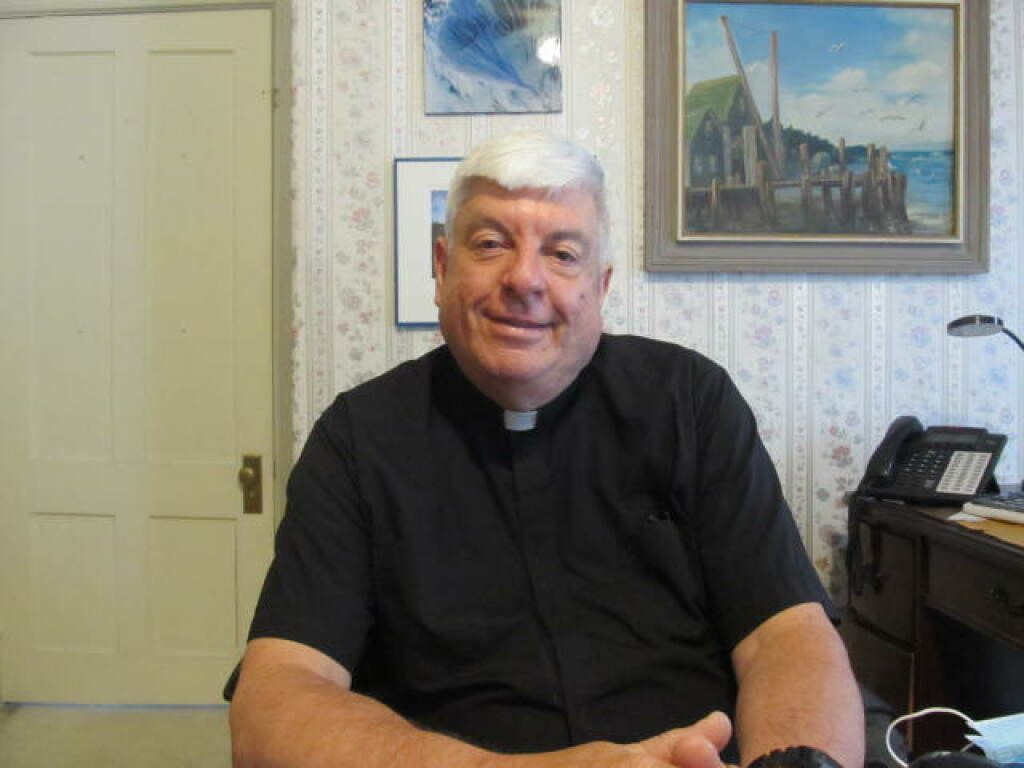 Embracing Our Common Humanity
Embracing Our Common Humanity
Homily for the Solemnity of the Epiphany
January 3. 2020
To understand today’s celebration, I want to begin with one of my favorite baseball stories. In 1947 Jackie Robinson became the first black player in the major leagues. The Brooklyn Dodger’s owner, Branch Rickey, told Robinson that he would be in for a lot of abuse, that he would be ridiculed and receive more verbal punishment than he thought possible. But Rickey promised that he would back Robinson all the way if he had the determination to make it work.
Very soon, Robinson started to experience the abuse Rickey foretold. There were derisive comments from opponents, fans, coaches, even his own teammates. One day around mid-season Robinson was having a particularly bad day. He fumbled several grounders, overthrew first base, and batted poorly. The crowd that day was being particularly nasty. Then something wonderful happened. Pee Wee Reese, the captain of the team, was playing shortstop. He walked over and put his arm around Jackie Robinson. Robinson later reflected on just how incredibly important that moment was: “That simple gesture saved my career. Pee Wee made me feel as if I belonged.”
Now we’re all familiar with the story of the “three kings” coming from afar in order to worship the new-born king. But the true significance of that is spelled out in our second reading from Saint Paul’s letter to the Ephesians. Paul writes that God has revealed a new mystery, something that, up until that point, was unknown. This is how Paul describes it: “It was not made known to people in other generations as it has now been revealed to his holy apostles and prophets by the Spirit: that the Gentiles are coheirs, members of the same body, and copartners in the promise in Christ Jesus through the gospel.”
Up to the time of Christ, it was only the Jews who were considered the “chosen people”. Much of the history contained in the Bible deals with God selecting the Hebrew people to be peculiarly his own, his special possession. It goes back to the time of Moses, when the Jewish people were slaves in Egypt. When they cried out for deliverance, God heard their plea, freed them from slavery and brought them to their own land. He was to be their one and only God, and they, in turn, would be his people.
What Paul is saying, and what is symbolized by the foreigners from the East, is that being the people of God is no longer limited to the Jews. It is as if Paul and the other Apostles have been called by God to be the Pee Wee Reese of their day. They are to put their arms around, not just the Hebrew people, but also the non-Jews, or Gentiles. Together, they are now one team, one people, one family, or as Paul writes, “the Gentiles are coheirs, members of the same body, and copartners in the promise in Christ Jesus through the gospel.”
The worship of Jesus by the Magi, who are non-Jews, is the dramatic announcement of the breaking down of former barriers, and the creation of a new inclusiveness, of people of every nation, culture and race. We are now partners, on the same team.
That is the spirit of today’s all-important Feast: God does not want us to put up barriers to salvation; he wants us to tear the barriers down. God doesn’t want any one group to feel superior to any other. During his ministry, Jesus would teach us all, regardless of our skin color, language, country of origin, or economic or social status, that we have one God to whom we pray as “Our Father,” making us all brothers and sisters in one human family. Today’s Feast of the visitors from the East explodes the nasty divisiveness that leads to the horrible mistreatment of people of color, immigrants, and those who are economically or socially less well-off. No, we are “coheirs, members of the same body, and copartners in the promise in Christ Jesus through the gospel.” Just as Pee Wee Reese’s embrace of Jackie Robinson changed the history of baseball, so the three kings’ worship of Jesus challenges us to embrace each other, indeed to embrace all people, in acknowledgment of our common humanity.
You might also like
Father's Homilies




